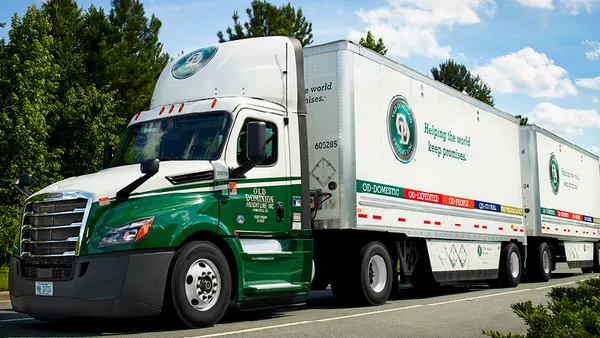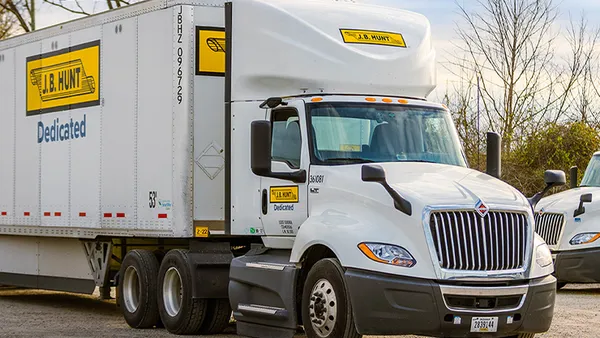After February’s severe weather, Knight-Swift Transportation was expecting a seasonal volume rebound in March. Instead, tariff uncertainty brought that momentum to a standstill, resulting in lower volumes, CEO Adam Miller said during the company’s Q1 earnings call Wednesday.
During the call, Miller said Knight-Swift leaders have spoken with 40 to 50 of its largest shipper clients, and many have openly communicated one of three approaches to tariffs:
- Press forward on their current strategy and hold off on changes related to duties
- Cut back or stop purchases, specifically from China
- Wait and see, drawing down on inventory
“Our customers are expressing more concern around cost impacts of tariffs and less concern regarding demand from their customers,” Miller said, adding that Knight-Swift anticipates near-term disruptions. “However, if consumer spending remains steady, goods will have to move at some point, and that may create opportunities for carriers that are proven to be nimble with scale, like many of our Knight-Swift truckload brands.”
Miller expects a “wide range” of possibilities going forward. Shippers could pull forward inventory and react quickly to trade policy changes, leading to higher volumes and a gravitation toward flexible services like truckload. Or, recession fears could lead shippers to cut inventories, resulting in lower volumes.
The uncertainty is also impacting rate negotiations, Miller continued. While Knight-Swift still sees increases in the low- to mid-single-digit percent range, the increases are not building, as previously expected. Truckload revenue was down 4% year over year, according to the company’s earnings presentation.
As a result, Knight-Swift is working to reduce its own costs. Miller said the company is selling underutilized tractors and trailers in a “relatively good used equipment market” to reduce its depreciation costs and optimize existing assets.
“If we see the market turn around quickly … we can slow down on what we pull out and we can order more trucks,” he said.
For now, the carrier is changing its Q2 guidance, providing a wider, more conservative range of earnings estimates. Executives will withhold Q3 guidance altogether until they have more clarity around the evolving tariff environment.















